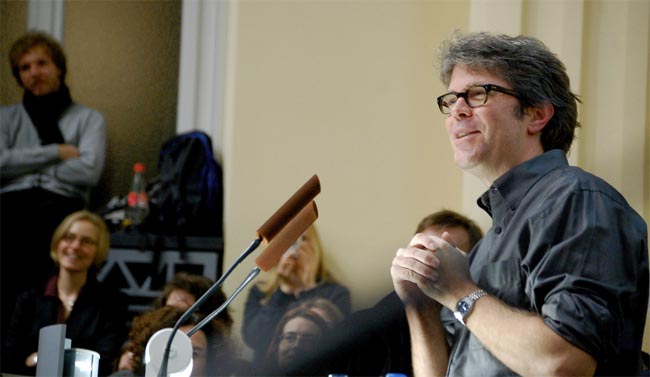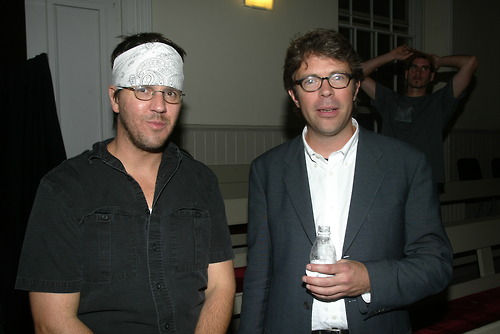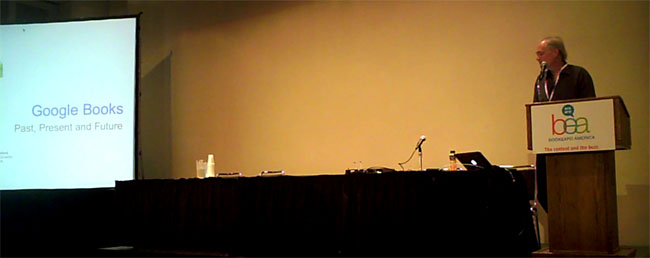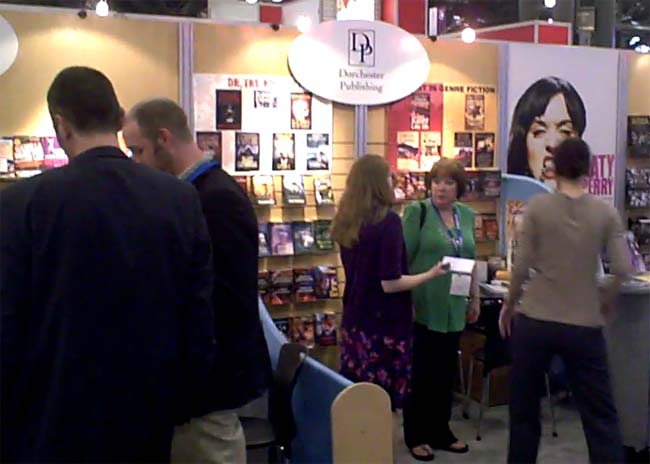On May 28, 2011, The New York Times published a Jonathan Franzen op-ed “adapted from a commencement speech he delivered on May 21 at Kenyon College. The piece contained a link to an audio version of the piece. Here’s a breakdown of what Franzen didn’t include (I have not included throat clearing or minor linking words):
“Good morning, class of 2011. Good morning, relatives and faculty. It’s a great honor and pleasure to be here with you today. I’m going to go ahead and assume you all knew what you were getting into when you chose a literary writer to deliver this address. I’m going to do what literary writers do, which is talk about themselves in the hope that my experience has some resonance with your own experience. I’d like to work my way around to the subject of love and its relation to my life and to the strange techno-consumerist world that you guys are inheriting.” (Beginning to 00:38)
“…powerful Blackberry Bold with a five megapixel camera and 3G capability.” (Bolded product description dropped, 00:43-00:48)
“…tiny track pad…” (“tiny” dropped, 1:03)
“…impelling them to action by speaking incantations…” (dropped, but this may have been a reading flub, 2:02-2:04)
“Let me toss out the idea that according to the logic of techno-consumerism in which markets discover….” (dropped, 2:26-2:28)
“…the ongoing transformation…” (“ongoing” dropped, 3:48)
“…fallen for your schtick. Those people exist to make you feel good about yourself, but how good can your feeling be when it’s provided by the people you don’t respect? You may find yourself becoming depressed…” (dropped, 5:17-5:23)
“dissed” upgraded to “disrespected” (6:34)
“One of the heartening things about the plague of cell phones in my Manhattan neighborhood is that among all the texting zombies and the party-planning yakkers on the sidewalks, I sometimes get to walk along somebody who’s having an honest to God fight with the person they love. I’m sure they prefer not to be having the fight on a public sidewalk, but here it’s happening to them anyway and they’re behaving in a very, very uncool way. Shouting, accusing, and pleading, abusing. This is the kind of thing that gives me hope for the world.. Which is not to say that love is only about fighting or that radically self-involved people aren’t capable of accusing and abusing.” (dropped, 7:53-8:30)
“When I was a senior in college, I took the first seminar the college had ever offered in literary theory. And I fell in love with the most brilliant student in the seminar. Both of us liked how instantly powerful literary theory made us feel. It’s similar to modern consumer technology in this regard. And we flattered ourselves on how much more sophisticated we were than the kids who were still doing those tedious old close textual readings. For various theoretical reasons, we also thought it would be cool to get married. (uncomfortable laughter from students) A longer story than we have time for here, but my mother, who had spent twenty years making me into a person who craved full commitment love now turned around and advocated that I spend my twenties, as she put it, footloose and fancy free. Naturally, since I thought she was wrong about everything, I assumed she was wrong about this. I had to find out the hard way what a messy business commitment is. The first thing we jettisoned was theory. My soon-to-be wife once memorably remarked after an unhappy scene in bed, ‘You can’t deconstruct and undress at the same time.’ (more uncomfortable laughter) Try it. We spent a year on different continents and very quickly discovered that, although it was fun to fill the pages of our letters to each other with theoretical riffs, it wasn’t so much fun to read those pages. But what really killed theory for me, and began to cure me more generally of my obsession with how I appeared to other people, was my love of fiction. There may be a superficial similarity between revising a piece of fiction and revising your webpage or your Facebook profile. But a page of prose doesn’t have those slick graphics to help bolster your self-image. If you’re moved to try and return the gift that other people’s fiction represents for you, you eventually can’t ignore what’s fraudulent or second-hand in your own pages. These pages are a mirror too. And if you really love fiction, you’ll find that the only pages worth keeping are the ones that reflect you as you really are.” (9:00-11:00)
“unliked” instead of “disliked” (11:08)
“My wife and I, having married too young, eventually surrendered so much of ourselves and caused each other so much pain that we each had reason to regret ever having taken the plunge. And yet I can’t quite make myself regret it. For one thing, our struggle to honor our commitment actively came to constitute who we were as people. We weren’t helium molecules floating inertly through life. We bonded and we changed. For another thing, and this may be my main message to you…..[segues into “pain hurts”]” (11:27-11:55)
“What I said earlier about how engagement with something you love compels you to face up to who you really are may apply particularly to fiction writing. But it’s true of just about any work you undertake and love. I’d like to conclude here by talking about another love of mine.” (12:34-12:49)
“And since I’d been fired up by critical theory and I was looking for things to find wrong with the world and reasons to hate the people who ran it…” (bold parts dropped, 12:59-13:05)
“…the angrier and more people hating I became…” (bold part dropped, 13:20-13:25)
“Finally, around the time my marriage was breaking up, I made a conscious decision to stop worrying about the environment” changed to “Finally, in the mid-1990s, I made a conscious decision to stop worrying…” (13:26-13:29)
“I had no choice but to start worrying about the environment again. Yeah, what a drag.” (bold part dropped, 14:38-14:40)
“Like I said, the bird thing was very unexpected to me. For most of my life, I hadn’t given much thought to animals. And maybe I was unlucky to find my way to the birds so relatively late in life. Or maybe I was lucky to find my way to them at all. Once you’re hit with a love like that, however late or early, it changes your relation to the world. In my case, for example, I’d abandoned doing journalism after a few early experience [sic] because the world of facts didn’t excite me the way the world of fiction did. But after my avian conversion experience, which has taught me to run toward my pain and anger and despair rather than away from them, I started taking on a new kind of journalistic assignment. Whatever I most hated at a particular moment became the thing I wanted to write about. I went to Washington in the summer of 2003 when the Republicans were doing things to the country that enraged me. I went to China a few years later because I was being kept awake at night by my anger about the havoc the Chinese are wreaking on the environment. I went to the Mediterranean to interview the hunters and poachers who were slaughtering migratory songbirds. In each case, when meeting the enemy, I found people who I really liked. In some cases, outright loved. Hilarious, generous, brilliant gay Republican staffers. Fearless, miraculous, young Chinese nature lovers. A gun crazy Italian legislator who had very soft eyes and who quoted the animal rights advocate Peter Singer to me. In each case, the blanket hatred that had come so easily to me wasn’t so easy anymore. (15:59-17:26)
(Photo credit: Daniel Sillman)




